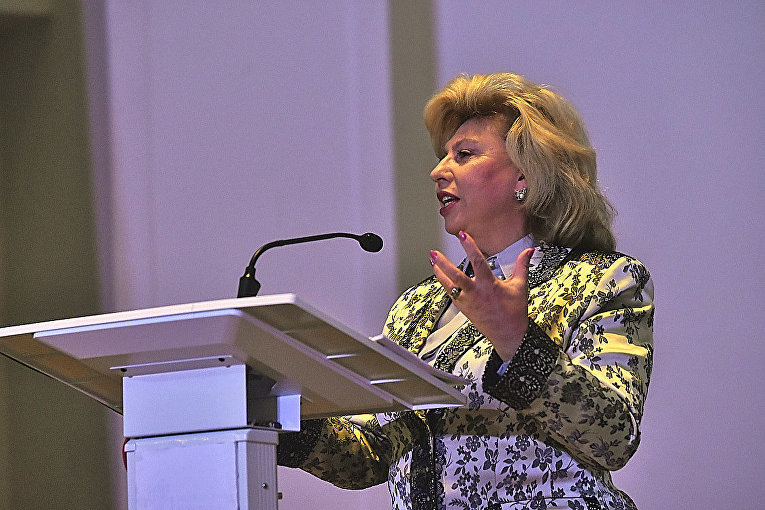MOSCOW, November 19 (RAPSI) – It is necessary to develop an international legal act envisaging regulation of human rights and liberties amid the pandemic, Russia’s Ombudsman Tatiana Moskalkova believes.
On Thursday, the Rights Commissioner presented a report on the problems activities aimed at the protection of human rights encounter in the time of the global coronavirus infection spread.
The scale and complexity of the problems foreign and Russian nationals face in connection with the sealing of many state borders bring up an issue of making an international act, which is to outline the rights and responsibilities of citizens under regimes introducing restrictions aimed at the containment of the disease, set forth the responsibilities of the governments, determine specifics of the operation of international bodies, the report reads. The proposed document is to guarantee human rights at the international level with respect to disabled persons, detainees, among them of those in confinement in foreign jurisdictions, cover such issues as extradition and movement of people across state borders, as well as a wide range of other respective aspects.
First of all, Moskalkova states, in order to improve international law in the sphere of human rights and liberties it is necessary to draft an international agreement (memorandum) between Russian and neighboring countries, states being members of the Eurasian Economic Union, the European Union envisaging measures to be taken to return to their home countries citizens being abroad, especially those since long expecting administrative expulsion, deportation, and readmission in the period quarantine restrictions are in force as to travel between states.
Besides, it would be feasible, the Ombudsman believes, to introduce a provisional identity document attesting the status of stateless so to legalize the stay of such persons in the territory of the Russian Federation.



